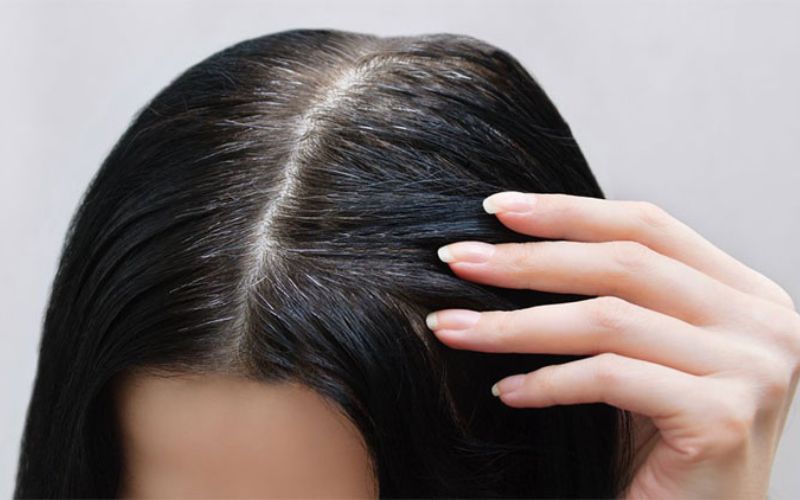Vitamin B10 (PABA) is a vitamin that is effective in health care and skin care. So what are the uses, how to use and side effects of vitamin B10? Let’s refer to the following article.
Vitamin B10 is also known as PABA – an ingredient that has extremely good UV protection effects. However, besides sun protection, does this vitamin have any other effects? Let’s find out through the following information.
1 What is Vitamin B10 (PABA)?

Vitamin B10 is also known as PABA.
- Vitamin B10 is an alternative name for the organic compound PABA (Para-aminobenzoic acid), a white crystalline substance.
- It is part of the vitamin B complex. It is found mainly in products: organ meats, mushrooms, cereals, spinach, yeast.
- PABA is considered beneficial for skin and hair care when used as a health supplement. This substance is produced industrially and prepared in powder, tablet, topical cream,…
2 Uses of vitamin B10
Vitamin B10 protects the skin from the harmful effects of sunlight
- PABA can absorb ultraviolet rays, especially UVB rays, protecting the skin from the harmful effects of sunlight. Therefore, it has been an important ingredient in sunscreens since the 1940s.
- However, due to its association with some allergic reactions on the skin, PABA has since been no longer recognized as safe by the Food and Drug Administration (FDA).
- PABA is now found in some creams such as moisturizers, combined with other ingredients such as aloe vera to help moisturize and protect the skin.

Vitamin B10 protects skin from sun damage
Vitamin B10 helps treat skin-related disorders
- PABA has also been shown to help with skin problems such as hard skin, tissue buildup, and discoloration.
- PABA has also been identified as an effective adjunct to scleroderma, an autoimmune disease that causes hardening of the skin and fibrous deposits in organs.
- PABA is also used as a treatment for vitiligo, a condition marked by loss of pigmentation and white patches on the skin.
Vitamin B10 for Irritable Bowel Syndrome
- PABA supplements are recommended by doctors for people with irritable bowel syndrome to effectively treat their digestive symptoms such as abdominal pain, diarrhea, bloating, etc.

Support treatment of irritable bowel
Vitamin B10 has anti-allergic activity
- Vitamin B10 has good anti-allergic and anti-inflammatory activity. Therefore, it is added to many topical creams to treat allergic diseases such as eczema and acute dermatitis.

Vitamin B10 is effective against allergies
Vitamin B10 Hair Care
- PABA is a substance that helps prevent premature graying of hair. It stimulates the production of melanin, the pigment that determines the color of the skin, eyes, and hair.
- Taking PABA at doses of 200 mg to 240 grams per day darkens hair and may return gray hair to its original color. However, it is important to note that gray hair may return after participants stop taking the supplement.

Support darkening hair
Vitamin B10 may treat rheumatic fever
- Rheumatic fever can cause inflammation of the joints, blood vessels, and heart, which can have a major impact on a person’s health and daily life. Vitamin B10 may be an option for treating or preventing rheumatic fever if the person is allergic to penicillin.
Vitamin B10 helps metabolize proteins
- Vitamin B10 is derived from para-aminobenzoic acid – an organic compound containing an attached amino group. PABA acts as a coenzyme that helps the body’s cells use proteins more efficiently, thereby helping their metabolism.
3 Ways to Use Vitamin B10

Appropriate dosage when using vitamin B10
- The recommended daily dose of vitamin B10 is 500 mg. However, vitamin B10 supplements on the market can range from 100 mg to over 1,000 mg.
- As a sunscreen, vitamin B10 is available in concentrations of 1% – 15%.
- Always consider and consult your doctor before starting PABA supplementation.
4 Side effects of taking vitamin B10

Side effects of itching and rash when using vitamin B10
- Some allergic reactions to sunscreens containing PABA, causing red rashes and itching have occurred
- Vitamin B10 doses of more than 8 – 10 grams per day can reduce blood sugar and damage the liver and kidneys.
- Vitamin B10 can interact with sulfonamides (sulfa drugs) and reduce their effectiveness. So be careful when using these active ingredients together.
- The safety of PABA in children and pregnant and lactating women is still unknown.
Vitamin B10 is essential for many activities of the body. Hopefully the above article will help everyone have more useful information about the uses, how to use and side effects of vitamin B10.





